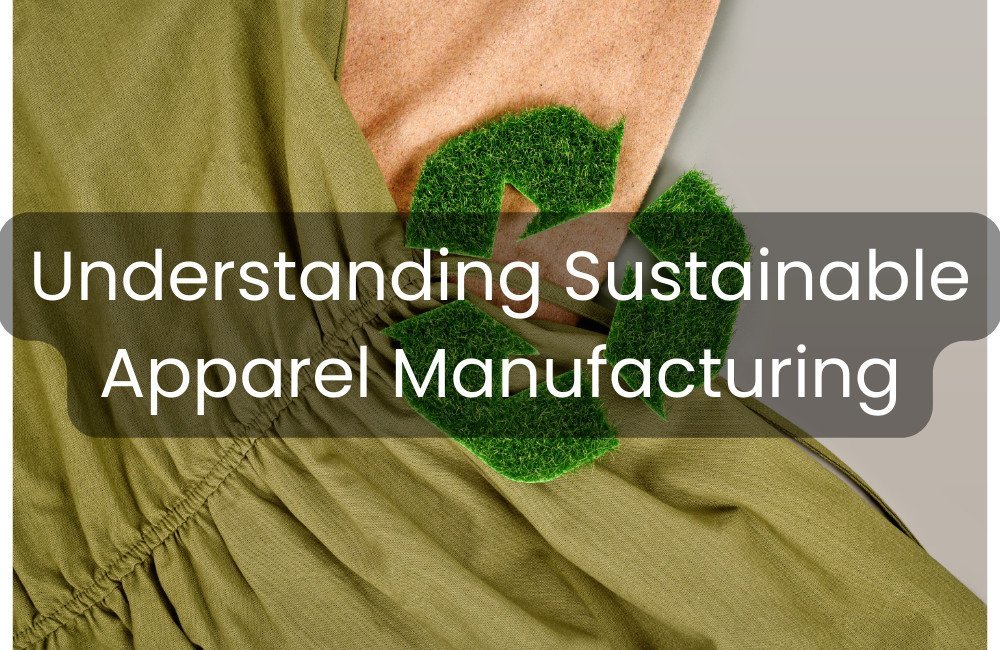Sustainability in apparel manufacturing has emerged as a critical issue in response to growing environmental concerns, ethical considerations, and consumer demand for eco-friendly products. The global apparel industry is notorious for its environmental footprint, with the fashion sector being one of the largest polluters. According to the Ellen MacArthur Foundation, the fashion industry produces 92 million tons of waste and consumes 79 trillion liters of water annually . As a result, there is an urgent need for manufacturers to adopt sustainable practices to mitigate these impacts.
Definition of Sustainable Apparel Manufacturing
Sustainable apparel manufacturing refers to the creation of clothing in a way that minimizes environmental impact, ensures fair labor practices, and promotes economic viability. This encompasses the entire lifecycle of a garment, from raw material sourcing to end-of-life disposal. Key components of sustainable manufacturing include:
- Ethical Sourcing of Materials: Using raw materials that are renewable, biodegradable, or recycled. Organic cotton, Tencel, and recycled polyester are examples of sustainable materials.
- Energy Efficiency: Implementing energy-saving technologies and utilizing renewable energy sources to reduce carbon emissions.
- Water Management: Reducing water usage and improving wastewater treatment processes.
- Waste Reduction: Minimizing waste through efficient manufacturing processes and promoting circularity by designing for recyclability.
- Fair Labor Practices: Ensuring safe working conditions and fair wages for workers throughout the supply chain.
Current Status of Sustainable Practices in the Industry
The transition to sustainable manufacturing is gaining momentum, driven by both regulatory pressures and market forces. Governments and international bodies are setting stricter environmental regulations. For instance, the European Union’s Circular Economy Action Plan aims to ensure that textile products placed on the EU market are durable, repairable, and recyclable by 2030 .
Many apparel brands are also setting ambitious sustainability goals. Patagonia, for example, has committed to becoming carbon neutral by 2025. Similarly, H&M aims to use only recycled or sustainably sourced materials by 2030 . These commitments reflect a broader industry trend towards sustainability.
Technological Innovations Driving Sustainability
Several technological advancements are facilitating the shift towards sustainable apparel manufacturing:
- 3D Printing and Digital Fabrication: These technologies allow for on-demand production, reducing waste associated with overproduction.
- Waterless Dyeing Techniques: Innovations like CO2 dyeing, which uses carbon dioxide instead of water to dye fabrics, drastically reduce water consumption.
- Blockchain for Transparency: Blockchain technology provides traceability in the supply chain, ensuring that materials are sourced ethically and sustainably.
Challenges and Opportunities
While the shift towards sustainability presents numerous opportunities, it also poses significant challenges:
- Cost: Sustainable practices often require substantial upfront investments in technology and infrastructure.
- Supply Chain Complexity: Ensuring sustainability across the entire supply chain, from raw material suppliers to end consumers, is complex and requires robust systems and transparency.
- Consumer Awareness: Educating consumers about the benefits of sustainable apparel is crucial for driving market demand.
However, these challenges are accompanied by opportunities for innovation and leadership in the industry. Companies that successfully implement sustainable practices can differentiate themselves in the market, build stronger brand loyalty, and meet the increasing demand for eco-friendly products.
Conclusion
Sustainable apparel manufacturing is not just a trend but a necessary evolution for the industry. It involves a holistic approach that considers environmental, social, and economic impacts. By embracing sustainable practices, apparel manufacturers can contribute to a healthier planet, support ethical labor practices, and create long-term economic value. As technology advances and consumer awareness grows, the path towards sustainability will become clearer and more achievable for manufacturers around the world.







